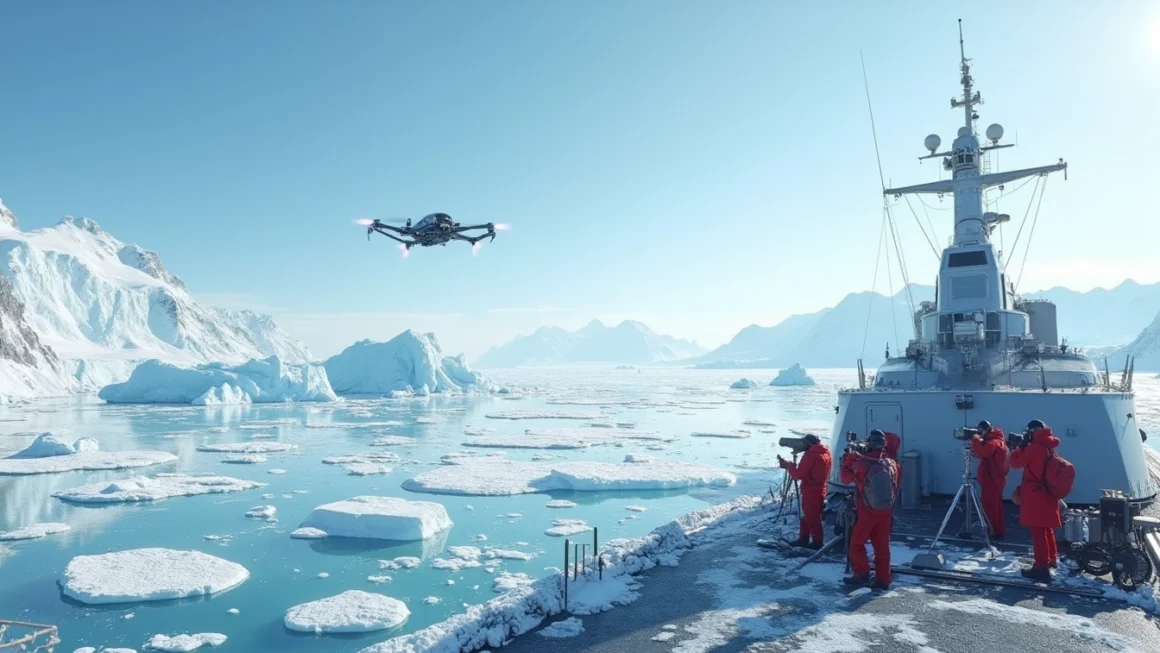Introduction
Table of Contents
The Arctic region, long enveloped in its icy seclusion, has become a focal point of international attention and geopolitical interest. With the profound shifts in Arctic security dynamics, questions arise about the strategic intentions and actions of Arctic and non-Arctic nations. This evolving landscape demands an understanding of the underlying factors driving these changes and their implications for regional and global security.
Geopolitical Influences in the Arctic
Changing Climate and Accessibility
The warming climate has notably affected the Arctic, melting ice and opening new sea routes. These changes have not only fostered increased accessibility but have also spurred interest in untapped natural resources, resulting in a strategic pivot by states eager to exploit these emerging opportunities.
Resource Exploration and Economic Interests
Beneath the Arctic’s frosty exterior lies a wealth of resources, including oil, gas, and rare minerals. Nations with territorial claims are actively pursuing resource exploration, anticipating economic benefits and enhanced energy security from this largely untapped region.
National Defense and Security Strategies
Countries with Arctic territories are reevaluating their military strategies and presence in response to growing regional tensions. The enhancement of military infrastructure, including bases and icebreaker fleets, exemplifies increasing defense postures aimed at securing national interests amid contested borders and rising activities by non-Arctic states.
International Cooperation and Tensions
Council Interactions and Multilateral Agreements
The Arctic Council, comprising eight Arctic states, remains a primary forum for addressing regional issues through cooperative engagement. However, divergences in national priorities and the involvement of observer states present challenges that impact the effectiveness of this multilateral platform.
Strategic Interests of Non-Arctic States
Beyond Arctic nations, countries such as China and India are harnessing strategic interests in Arctic affairs, primarily through scientific research collaborations and budding economic ventures. These interactions, while bringing developmental prospects, also add complexity to the region’s geopolitical stability.
Implications for Future Arctic Security
Environmental Concerns and Sustainable Development
The ecological fragility of the Arctic underscores the need for sustainable practices, transcending mere resource competition. Nations are urged to prioritize environmental protection, ensuring that economic pursuits do not irrevocably harm the Arctic’s delicate ecosystems.
Innovation in Policy and Technological Advancements
The evolution of Arctic security policies is closely tied to technological advancements. Innovations in satellite surveillance, environmental monitoring, and energy extraction methods hold promise for informed decision-making and responsible stewardship over the Arctic’s future.
Conclusion
The shifting landscape of Arctic security brings about a blend of opportunities and challenges. As nations navigate these uncharted waters, collaboration and strategic dialogue become essential in fostering peace and stability. To learn more about automating processes involved in understanding and managing geopolitical shifts, visit this automation platform.
Addressing the security dynamics in the Arctic requires a comprehensive approach, taking into account environmental sustainability, technological progress, and enhanced cooperation among all stakeholders. As global interest intensifies, maintaining a balanced focus on developmental ambitions and ecological preservation will be pivotal to securing the Arctic’s future.




